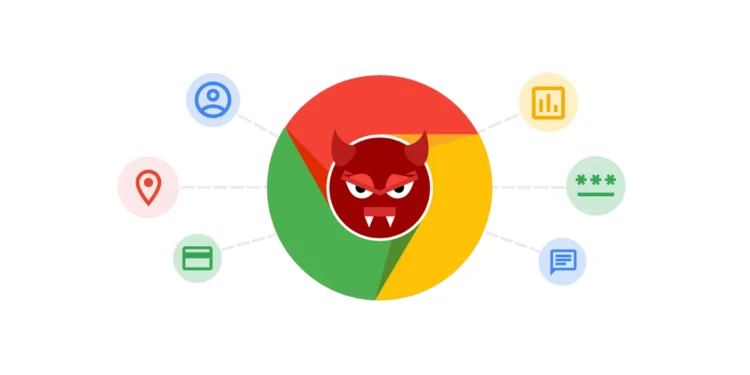In a troubling development for millions of Google Chrome users, recent investigations have revealed a surge in malicious browser extensions. These rogue tools are not just posing threats by bypassing two-factor authentication (2FA) protections but are exploiting Google’s own search mechanisms to gain prominence and victimize users worldwide.

How Hackers Are Outsmarting Google
At the heart of this new wave of cyber threats is the cunning manipulation of Google’s search algorithms. Security researchers have uncovered that hackers are effectively gaming Google’s system to push their hazardous extensions to the top of Chrome Web Store searches. According to Wladimir Palant, a notable privacy and security researcher, these manipulations are sophisticated and multilingual, involving tactics that exploit the Chrome Web Store’s search index across various languages.
“Apparently, some extension authors figured out that the Chrome Web Store search index is shared across all languages,” Palant explained. By stuffing extension descriptions with an array of keywords in up to 55 different languages, these dubious developers ensure their products appear prominently in searches, regardless of the searcher’s language settings.

The Art of Deception: Advanced Tactics in Extension Manipulation
Palant’s analysis, which has stirred significant concern, highlights several deceptive practices employed by these cybercriminals:
- Name Variation: Extensions often have slightly altered names depending on the language, exploiting the search algorithm’s preference for names over descriptions.
- Description Discrepancies: Many extensions feature varied short descriptions based on the language, further complicating the detection efforts.
- Competitor Name Usage: In a bold move, some extensions even rename themselves to mimic competitors in different languages.
- Extensive Descriptions: Utilizing poorly managed translation features in the Chrome Web Store, certain extensions present a ‘wall of text’—lengthy and often nonsensical descriptions padded with keywords in English.
These techniques not only boost the visibility of the malicious extensions but also make it harder for average users and even seasoned experts to identify them as threats.

Google’s Potential Countermeasures
The persistent manipulation of search and extension descriptions in the Chrome Web Store suggests a need for a more stringent regulatory approach. Palant suggests a revision of the Chrome Web Store search index to be language-specific, which could reduce the effectiveness of keyword stuffing across multiple languages. “If search results for Bengali no longer show up in English-language searches, there is no point messing up the Bengali translation anymore,” he notes.
This recommendation, if implemented, could significantly diminish the current manipulation incentives, potentially leading to a cleaner, safer browsing environment for users globally. As the digital landscape continues to evolve, the onus is on giants like Google to adapt and fortify their defenses against these increasingly sophisticated cyber threats.
As this story develops, the tech community and users alike wait with bated breath for Google’s response to these findings, hoping for a swift and effective resolution to this pressing security challenge.










